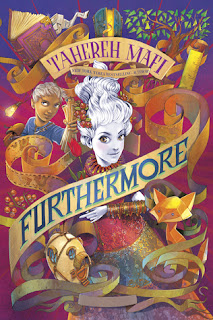The Tempest Review
The Tempest by William Shakespeare ( pages)
My Rating: 4 Stars
Date Read: 4 November 2016
Synopsis:
“Sources and Contexts” offers a rich collection of documents on the play’s central themes—magic and witchcraft, politics and religion, geography and travel. Writers include Ovid, Giovanni Pico della Mirandola, Gabriel Naudé, Michel de Montaigne, and William Strachey.
“Criticism” collects eighteen responses to The Tempest, from John Dryden and Samuel Taylor Coleridge to Stephen Orgel and Leah Marcus. “Rewritings and Appropriations” includes creative reactions to The Tempest, by playwrights, filmmakers, and poets, among them H.D., Peter Greenaway, and Ted Hughes.
A Selected Bibliography is also included.
My Review:
I had to read this play for my Shakespeare class in college and it was the first time I had ever read it.
This was an interesting play, and I'm not sure where it will fit on my scale for my favorite Shakespearean plays. While the plot was pretty straightforward, I do not know how I necessarily felt about the characters themselves. This being Shakespeare's final play, I feel like he wanted to pull in some aspects from his previous plays to draw the crowds in one last time.
I definitely see Shakespeare in Prospero. Both men are known for their art, Prospero's being magic and Shakespeare's being his writings, and in the end, both will give up those arts to be with their families. While it cannot be proved, Shakespeare did die fairly soon after his career ended, making yet another connection where possibly his "every third thought would be of the grave" just as Prospero foretold. And of course, Prospero's final soliloquy is said to be Shakespeare's swan song, his final curtain call.
Miranda can be seen as a voice for the audience a lot throughout the play. She is the reason we get the backstory about why Prospero is doing what he is doing, she voices concerns that the audiences may all be thinking. I think this was intentional because in most of the Shakespearean plays, there is at least one character who stands in for the audience.
Ariel, not going to lie, I thought he was a female character, though I found out by reading more, and watching a filmed production of it, that he is often portrayed as a male. I do, however, want to see what a female could do with this character. Especially since he is such a pivotal character to the plot line being in most, if not all, scenes in some way or another. Without Ariel, the story would not have been able to happen.
Caliban is weird. I understand why he hates Prospero and Miranda so much, but that doesn't excuse his actions both in the actual play and before it in the history sections.
I do not quite know what to classify this play as. It is definitely not one of the tragedies (mainly because it doesn't have a character name in the title) but it also isn't really a comedy. Would it be a mystical play? I don't really know. If you do, please, message me or comment on the post, because I am curious.
This play is often referenced in literature and in pop culture, but I never fully understood what they meant, so it was fun to be able to finally get what people were talking about. That being said, I do not think this is one of his most popular plays. Yes, it was his last, but I have not seen it come up as much in my studies as, let's say, Hamlet or Romeo and Juliet.
Overall, I enjoyed the play, but it definitely isn't my favorite. That spot still goes to Macbeth.




Comments
Post a Comment